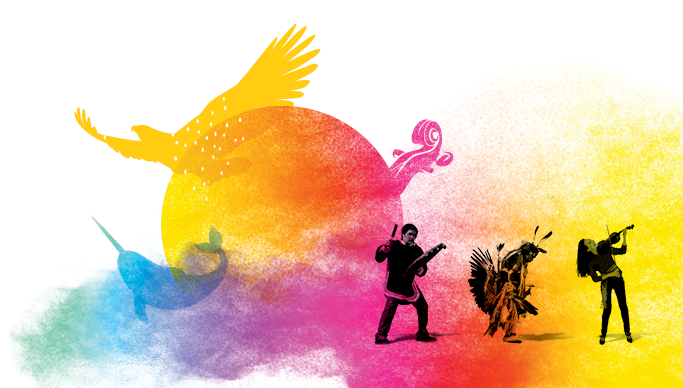May 26, 2022

Baycrest scientists partner with the Kingston Indigenous Language Nest (KILN) to support adult learners of Ojibwe
TORONTO – May 25, 2022 – With funding from Canada’s Social Sciences and Humanities Research Council (SSHRC), Baycrest and the Kingston Indigenous Language Nest (KILN) are using neuroscience and community engagement to develop a software-based language course for Ojibwe, or Anishinaabemowin, and evaluate its use in adult learners.
Indigenous languages in North America are at a crossroads. Due to the aging of remaining first language speakers and the interruption of transmission from generation to generation, language maintenance and revitalization efforts are highly time sensitive. To address this challenge in her community, Maureen Buchanan founded KILN.
“There’s a lot of language and culture loss in urban communities. The last speaker in my family was my grandma; I heard her speak the language as a child,” says Buchanan. “I wanted my grandson to be in a space where his cultural identity would be seen, valued and nurtured.”
KILN started eight years ago as a small group that gathered around Buchanan’s kitchen table and learned each other’s drum songs. Over time, they tried different strategies around learning. Today, KILN provides language group sessions, one-on-one and peer-to-peer learning and mentoring, and on-the-land language learning centred on community, knowledge sharing, healing, culture, food and land.
Through their partnership with Baycrest, KILN will offer a language course based on spaced repetition software, which is itself based on decades of research in psychology and neuroscience to optimize learning.
“Spaced repetition is a very effective way to study a language. In particular, it’s great for drilling vocabulary and grammar, and that’s really the biggest hurdle for learning a language,” says Dr. Jed Meltzer, Baycrest’s Canada Research Chair in Interventional Cognitive Neuroscience, Senior Scientist at Baycrest’s Rotman Research Institute and the lead scientist on this project.
The software is adaptive. For example, if a user keeps getting a word right, they won’t see it very much. In contrast, they’ll see words they get wrong more often.
“To really make progress in a language, you have to look at it every day. App-based language learning is convenient because the lessons can be completed in short bursts of free time, and the majority of us have smart phones now,” adds Dr. Meltzer. “With this project, we’re hoping to develop something useful that people can actually learn from.”
Additional expertise for the project comes from linguistics researchers at the University of Toronto Scarborough and Queen’s University.
Thanks to a lease agreement and generous funding grant from the City of Kingston, KILN has secured a permanent building at 610 Montreal Street in Kingston, which will officially open to the community on Saturday, May 28, 2022.
“We believe KILN can be a space to call home for all members of the urban Indigenous community, where all are welcome, whether they have never heard their own language or have been learning for years. The language lives with this beautiful community and we believe, with our new site, it will only continue to grow and thrive,” says Constance Carriere-Prill, Executive Director of KILN.
Baycrest and KILN will first pilot the use of their language course with adult learners of Ojibwe, who mostly learn on their own. Ultimately, their aim is to make it transferrable to other Indigenous and under-researched languages, to help adult learners across Canada and worldwide.
About Baycrest
Baycrest is a global leader in aging and brain health with a vision of a world where, with your help, we can all Fear No AgeTM. Baycrest provides everyone the tools they need to make their later years the best years of their lives. Through our work in research, innovation, care and education, we are working to defeat dementia and create a world where every older adult enjoys a life of purpose, inspiration and fulfilment. For more information about Baycrest, visit baycrest.org.
About Baycrest’s Rotman Research Institute
The Rotman Research Institute at Baycrest is a preeminent international centre for the study of aging and human brain function. Through generous support from private donors and funding agencies, the RRI advances our understanding of human brain structure and function in critical areas of clinical, cognitive, and computational neuroscience, including perception, memory, language, attention and decision making. With a primary focus on aging and brain health, including Alzheimer’s and related dementias, research at the RRI and across the Baycrest campus promotes effective care and improved quality of life for older adults through research into age- and disease-related behavioural and neural changes.
About KILN
For over eight years KILN has championed urban Indigenous language revitalization in the Kingston area. Started in the grassroots around a kitchen table, local Indigenous language learners were determined to continue building community and capacity to keep Indigenous languages alive. Our vision is to champion the urban resurgence of Indigenous languages through following the Kanyen’kehá:ka Kayanerenkó:wa (Great Law of Peace) and the Anishinaabe Seven Grandfather Teachings. We aim to lift each other up through peace, strength and a collective mind, continue to support other Indigenous-led community initiatives and create a space of openness and acceptance for all who wish to learn.
Meeting the needs of the urban Indigenous community is unique in that we do not have a land-base. Additionally, most of the speaking community, including teachers, are second-language learners, representing many different First Nations of many cultures and languages. Through the years, KILN members have built strong relationships with community partners and the peoples of the area to provide culturally relevant, responsive and safe language programming for Indigenous people of all ages.